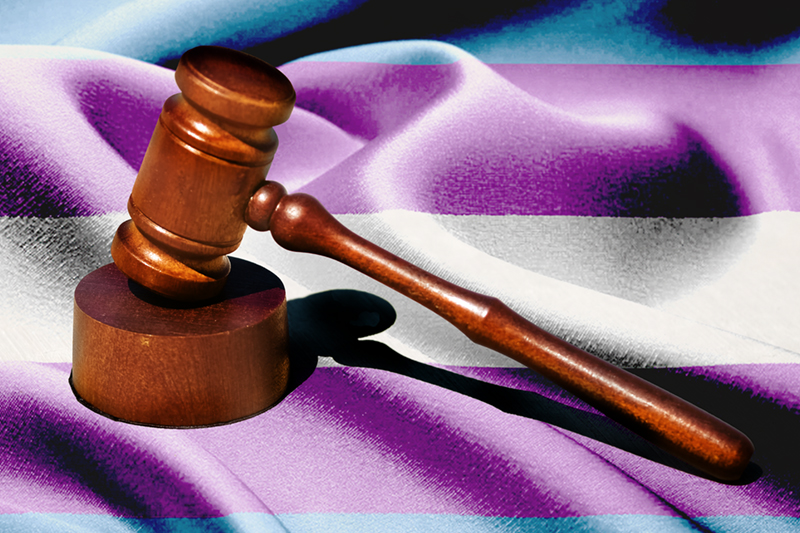Federal court allows trans inmate’s lawsuit against D.C. Department of Corrections to move forward
But court refuses to issue order stopping DOC from enforcing its policies and denies class-action status to discrimination lawsuit.

A federal court has denied a preliminary injunction and class certification in a lawsuit brought by a former prisoner in the D.C. Jail arguing that the D.C. Department of Corrections’ policy for housing transgender inmates is unconstitutional. However, the court is allowing the lawsuit to proceed.
On Thursday, Judge John Bates, of U.S. District Court for the District of Columbia, denied Sunday Hinton’s request for a preliminary injunction to stop the Department of Corrections from enforcing its policy, which requires transgender individuals to be placed in solitary confinement until they can potentially receive housing assignments that match their gender identity. He also denied Hinton’s request for class certification, which would have allowed other similarly situated trans women in DOC custody to join the lawsuit.
Hinton was previously housed in the men’s unit of the D.C. Jail for more than two weeks earlier this year, with no opportunity to request she be transferred to a women’s unit.
Under the old policy, DOC looked skeptically on the claims of transgender inmates, choosing to house most based on their genitalia, unless they obtained a recommendation from DOC’s Transgender Housing Committee — comprised of corrections staffers, a doctor, a social worker, a mental health clinician, and members of the local transgender community — to be moved to a unit reflecting their gender identity.
After Hinton filed her lawsuit, the Department of Corrections scuttled its anatomy-based policy, allowing trans inmates to obtain hearings requesting gender-affirming housing, but also requiring them to enter solitary confinement before receiving a more permanent housing assignment.
Hinton was also moved to a women’s unit, but said she wanted to continue challenging the policy, claiming that forcing trans prisoners into solitary confinement is still discriminatory, and puts them at greater risk of mental health problems.
But Judge Bates ruled that because Hinton is no longer in custody and DOC has since changed its original policy, she no longer needed immediate relief in the form of a preliminary injunction, and the court could not be sure there were enough people in the proposed class to certify it as a class action lawsuit.
However, the court also indicated that Hinton’s lawsuit remains active and that if more trans residents are identified as the case proceeds, it might revisit the issue of class certification.
Scott Michelman, the legal director of the ACLU of DC and lead counsel in the case, called Judge Bates’ decision “procedural” in nature and noted that Bates did not rule on the merits of DOC’s policies.
“DOC’s discriminatory treatment of trans people at the D.C. Jail violates both D.C. civil rights law and the Constitution, and we will continue to fight for trans rights,” Michelman said in a statement.
He also encouraged advocates or family members aware of other trans inmates denied gender-affirming housing assignments or forced into solitary confinement because of their anatomy to contact the ACLU of DC and the Public Defender Service for the District of Columbia to see if they might be eligible for relief.
Hinton expressed frustration at the decision, saying she was “disappointed” but vowing to fight on.
“I’m in this for the long haul and I’m going to keep fighting because all trans people at the jail should be treated with dignity,” she said.
See also:
Support Metro Weekly’s Journalism
These are challenging times for news organizations. And yet it’s crucial we stay active and provide vital resources and information to both our local readers and the world. So won’t you please take a moment and consider supporting Metro Weekly with a membership? For as little as $5 a month, you can help ensure Metro Weekly magazine and MetroWeekly.com remain free, viable resources as we provide the best, most diverse, culturally-resonant LGBTQ coverage in both the D.C. region and around the world. Memberships come with exclusive perks and discounts, your own personal digital delivery of each week’s magazine (and an archive), access to our Member's Lounge when it launches this fall, and exclusive members-only items like Metro Weekly Membership Mugs and Tote Bags! Check out all our membership levels here and please join us today!

























You must be logged in to post a comment.